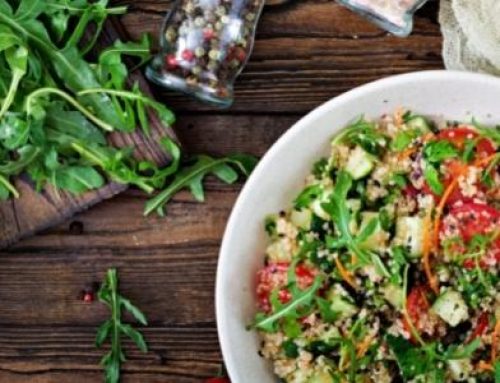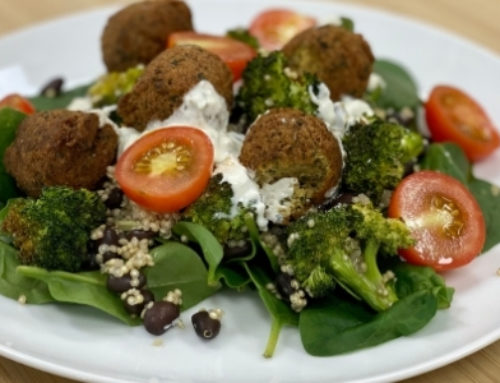
A thought that plays on all of our minds most days of our lives is:
What am I going to have for dinner tonight?
It seems like an innocuous enquiry. What am I going to put in my mouth this evening?.. But it’s a loaded question with many factors to consider. What do I feel like for dinner? What’s going to be a healthy option? What do I have in the fridge/ freezer/ pantry? Do I need to stop by the shops on the way home? What will my housemate/partner/spouse want? What will the kids eat? What won’t take too long to prepare? What will fit in with my afterwork commitments? …. GGAAAHHHH !!!!! (melt down ensues)
I hate this question. I become almost catatonic, unable to properly focus on my daily tasks until I have figured out what I need to do to get a meal on the table that night. And I don’t even have kids! I have no idea how parents cope with the question ‘what’s for dinner?’ looming over their heads.
My saving grace in the persistent need to cook an evening meal is the weekly meal plan! I spend 30 minutes on a Friday or Saturday planning food for the week ahead, making note of when I will be out and need a quick and easy option. My housemates can attest that every week my dinners are mapped out onto a pink and white paper planner and stuck to the fridge.
This 30 minutes to 1 hour of planning saves me hours of worrying during the week and prevents me from needing to duck into the shops continuously (which also helps to prevent me from picking up a block of chocolate here or an ice-cream there).
While my need to have meals planned may be due to a food obsession, planning and preparation is the cornerstone of healthy eating. Without a little bit of meal planning we are left victim to what’s available and convenient. What’s available and convenient is often highly processed, low in vegetables and not so good for long term health. Think about those night’s when you really haven’t had anything planned for dinner or your late from running round to kid’s sport. The idea of grabbing take away becomes more appealing with every passing moment.
So to help take the pressure off the daily question, ‘What am I going to have for dinner?’, here are my 6 steps to healthy meal planning.
1. Sit yourself down with a pen, paper, recipe books and/or the internet.
Book some time and space to plan your week. This little bit of time and effort goes a longe way. Try using our Weekly Meal Planner
2. Write down what events or appointments you’ve got on during the week ahead.
Are you going out to dinner one night? Do you have after work commitments like social sport or kid’s activities? Will you be working late one night? All of these things will effect the amount of time you have to prepare a healthy meal. If you know you are going to be out, there is no point planning to cook an elaborate meal. Be realistic about what you can acheive.
3. Check what you have got in the fridge/freezer/pantry?
Are there things that you need to use up before they go off? Can you save some money in this grocery shop by using what’s already stocked in the panty?
4. Pick some meals that you would like to cook.
This can be a great opportunity to get the family involved. Asking the family what they would like to eat and then getting them to take some responsibility for preparing that meal can help to share the workload. There is also alot of evidence to suggest that getting kids involved in the planning and cooking process helps them learn about food prepartion and they are more likely to try new things.
Take inspiration from recipe books, websites, blogs etc. These are some of the places I love to look:
- The Healthy Eating Hub Recipes
- The Australian Healthy Food Guide Magazine
- Taste.com.au
- Jamie Oliver
- The Australian Woman’s Weekly recipe books (many thanks to my mum for the hand-me-downs)
Hot tip: Don’t make your plan unachievable by putting in new, challenging recipes every night. Maybe keep several staple meals in your plan that are easy to prepare and just try 1 or 2 new recipes a week. This way you can slowly expand your reptoire.
5. Check your vegetable serves.
Does each of your dinner meals have 1/2 a plate of vegetables?. This is a full proof way of getting a nutritious meal. If the recipe you have picked is a one pot dish without much vegetable (like lasagne or pasta carbonara) think about how you can dish it up with some extra veg. Can you grate some zucchini into the meal or serve it with 1/2 plate of salad?
6. Create a shopping list and stick to it!
Once you know what you want to cook, you can figure out what you need to buy for the whole week and stock the fridge, freezer and pantry with all the necessities! Again, this will save you time and money as you can buy things in bulk and prevent wastage. Checking things off on a shopping list will also prevent you from wandering through the supermarket isles and picking up impulse buys of highly processed food.
Voila! This weekly ritual has saved me countless hours of worry and helps me to eat a balanced meal each night of the week. Give it a crack and let me know how it works for you!
*Hot Tip* – Keep your old meal plans! These can make for a nice fall back when you are running low on motivation and inspiration!
Check out our comprehensive guide on Organisation and Meal Planning for Busy People for more tips on meal planning and staying organised with your food!
If you’d like further help with your nutrition please click below:





